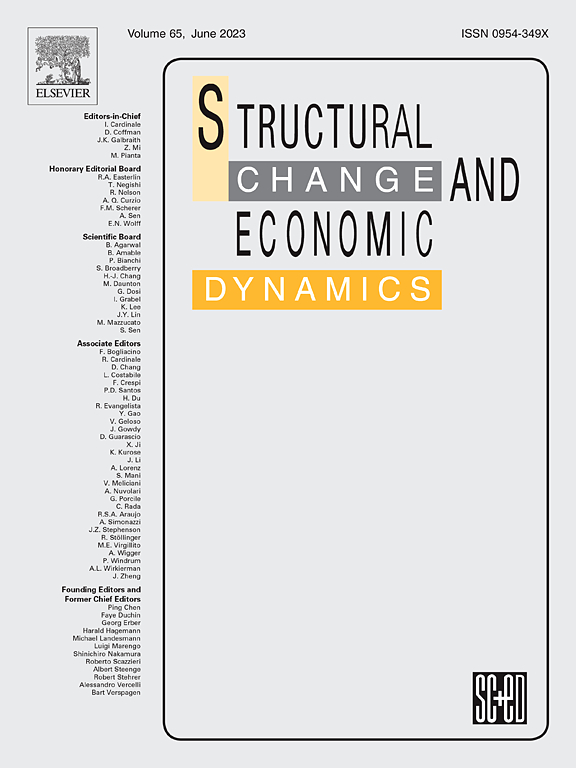Optimizing carbon responsibility allocation in the steel supply chain: A cradle-to-cradle life cycle assessment approach
IF 5.5
2区 经济学
Q1 ECONOMICS
引用次数: 0
Abstract
This study addresses the challenge of incentivizing carbon reductions in supply chains under carbon pricing mechanisms. Focusing on upstream raw materials, we propose a cradle-to-cradle life cycle assessment (LCA)-based carbon accounting model and a cooperative game model to optimize the fair allocation of carbon responsibility across a multi-level, multi-agent supply chain. Using a steel-construction supply chain case, we validate the model and uncover key insights: 1) High-performance products, with high production emissions but lower use-phase emissions, face unfair responsibility allocation when only production-stage emissions are considered; 2) Focusing on production-stage reductions leads to emission responsibility transfer from downstream to upstream and from larger to smaller companies; 3) Factors such as material-saving rates, product lifespan, and recycling have a greater impact on life cycle emissions than production-stage reductions alone. Based on these findings, we recommend enhancing the carbon labeling system and optimizing responsibility allocation to balance production and use-phase emissions.
优化钢铁供应链中的碳责任分配:一个从摇篮到摇篮的生命周期评估方法
本研究解决了在碳定价机制下激励供应链碳减排的挑战。针对上游原材料,本文提出了基于从摇篮到摇篮生命周期评估(LCA)的碳会计模型和合作博弈模型,以优化多层次、多主体供应链的碳责任公平分配。以钢结构供应链为例,我们验证了模型并揭示了关键见解:1)仅考虑生产阶段排放时,生产阶段排放高但使用阶段排放低的高性能产品面临不公平的责任分配;2)注重生产阶段的减排导致排放责任从下游向上游、从大型企业向小型企业转移;3)材料节约率、产品寿命和回收等因素对生命周期排放的影响大于生产阶段减排。基于这些发现,我们建议加强碳标签制度,优化责任分配,以平衡生产和使用阶段的排放。
本文章由计算机程序翻译,如有差异,请以英文原文为准。
求助全文
约1分钟内获得全文
求助全文
来源期刊

Structural Change and Economic Dynamics
ECONOMICS-
CiteScore
9.60
自引率
4.90%
发文量
159
期刊介绍:
Structural Change and Economic Dynamics publishes articles about theoretical, applied and methodological aspects of structural change in economic systems. The journal publishes work analysing dynamics and structural breaks in economic, technological, behavioural and institutional patterns.
 求助内容:
求助内容: 应助结果提醒方式:
应助结果提醒方式:


